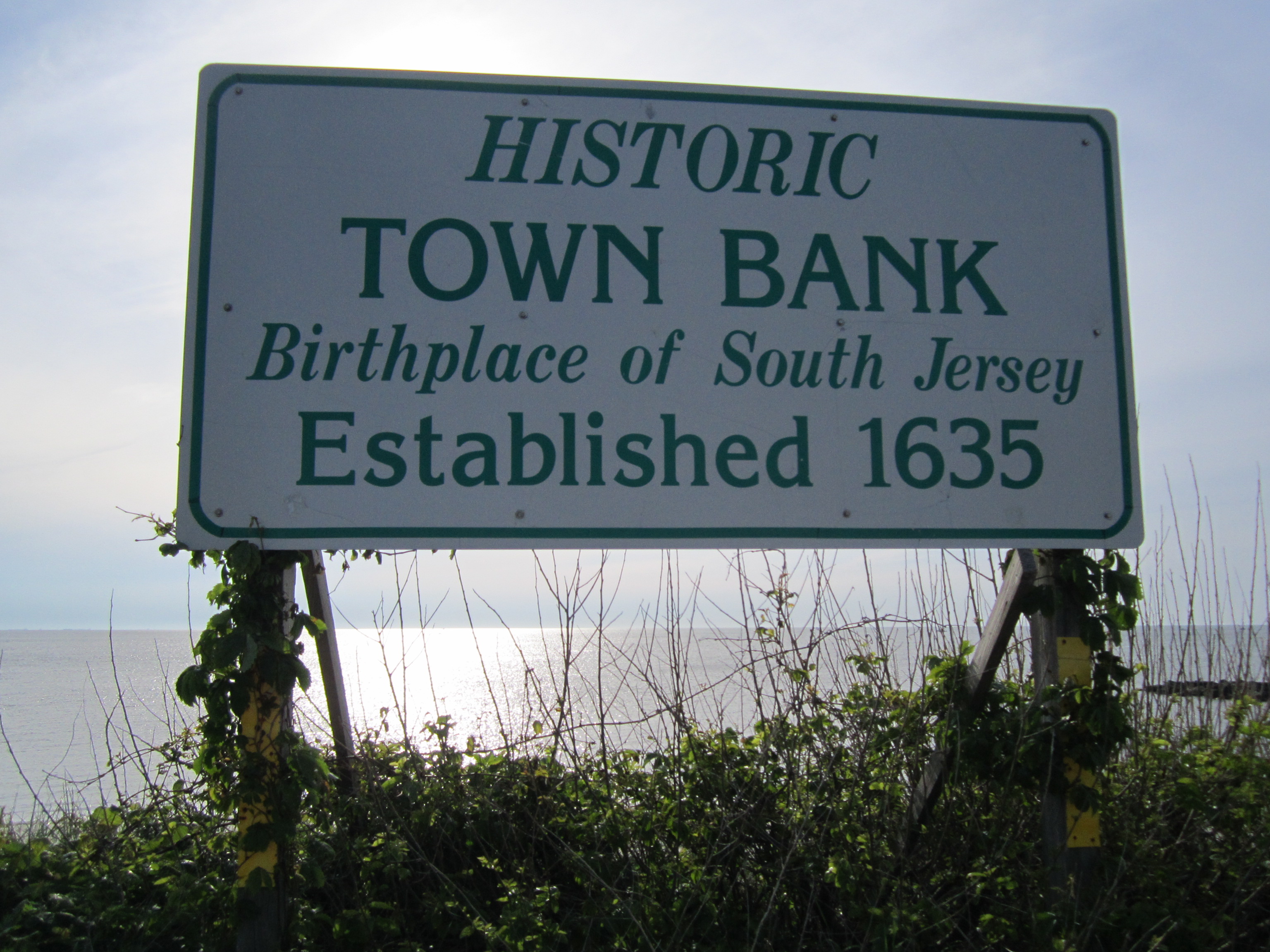History of Townbank
History as listed in part on Township of Lower Website>>
and updated in 2018 by current President Dean A. Umscheid
Historic Town Bank (aka New England Town, Portsmouth Town, and Falmouth) was the first settlement in New Jersey founded by Long Island and New England whalers around the year 1632, they settled on the sandy bluffs along the Delaware Bay shore. Among these settlers were Joseph Whilden & his wife Hannah Gorham, grandchild of John Howland, of the Mayflower Pilgrim. This location is now called Town Bank, NJ.
Legend has it that, in the 17th century, it also was one of the most successful whaling communities in the New World. In March 1633, Dutch fur trader, David DeYries, wrote in his journal, “Our people have caught seven whales, we could have done more if we had good harpoons, for they had struck seventeen fish and only saved seven.” Fifty years later, in a letter to the Commissioners of the Free Society of Traders, William Penn wrote, “Mighty whales roll upon the coast, near the mouth of the Bay of Delaware; eleven caught and worked into oil one season. We justly hope a considerable profit by whalers, they being so numerous and the shore so suitable.” Two years later, in 1685, the Burlington Court record noted that a Cape May Native American sold a whale to settlers.
The English court physician, Dr. Daniel Coxe, left written accounts about his establishment of a whaling enterprise in Town Bank in the mid- 1600s. “I have at the Expense of above three thousand pounds settled a Towne and established a fishing for Whales which are very numerous about Cape May both within the Bay and without all along the sea coast which I am assured if well managed will bring in above 4000E per Annum all charges Defrayed.” Right Whales were likely to have been the most abundant species in the region. One theory is that the Right Whale got its name from fishermen who considered it the “right” whale to kill because of its commercial value. Whale oil was refined to produce a crude oil used for light and lubrication, while whale baleen was used for corset stays, carriage springs, umbrella ribs, buggy whips, shoelaces, hat brims, collar stays and skirt hoops.
Whaling continued through most of the 18th century, with whalers rowing up and down the coast from mid-winter to early spring. However, by the start of the American Revolution in 1776, few whales were found in the region. After being out for two months on the water, Lewis Cresse reported in the l750s, “We never saw a whale nor the spout of a whale that we knew of in all the time.” In the following decades, whaling interests moved to other trades such as all types of fishing & land farming, building, import of retail goods, & tourist industry to name a few. Local residents even today, consider Town Bank as the birthplace of South Jersey.
